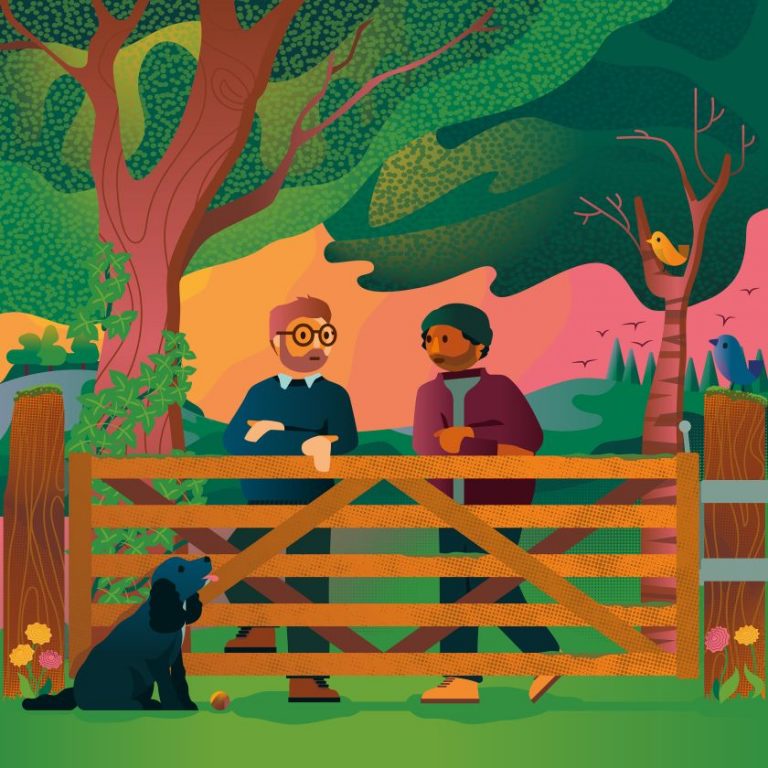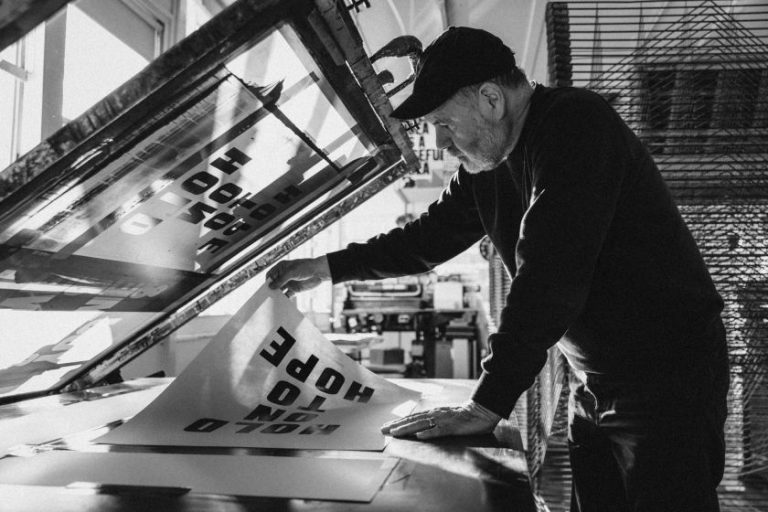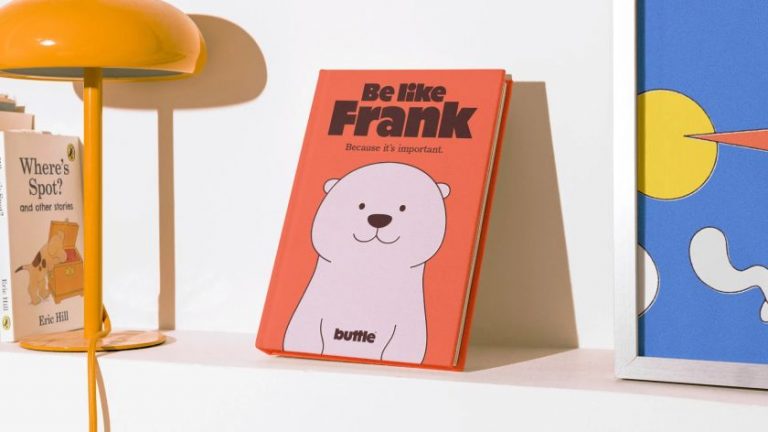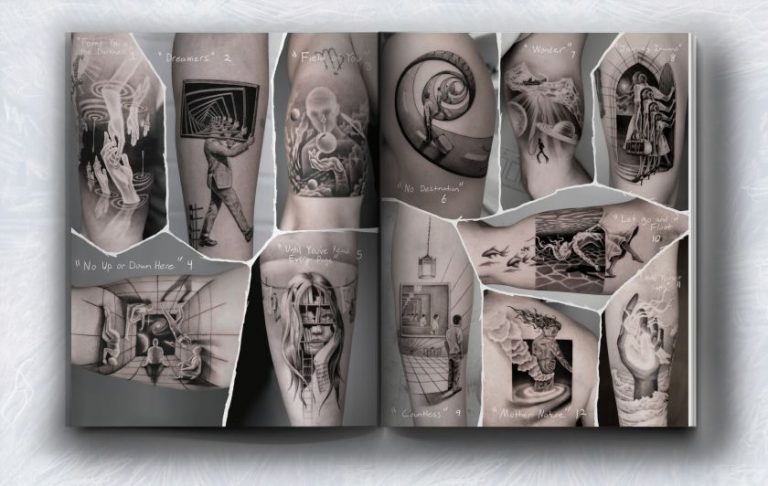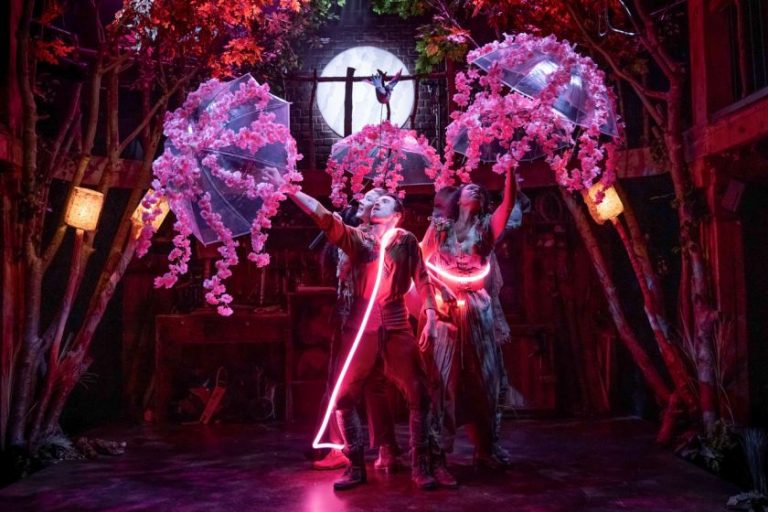Ontario-based writer and illustrator Jess Hannigan is about to release her first picture book, Spider in the Well. We caught up with her to learn how she made it and why lies are the perfect subject for a picture book.
Something is rotten in Bad Goodsburg. The local wishing well is busted, and the lazy townspeople are furious. To find out what’s wrong, the overworked and underappreciated newsboy has been sent to investigate, only to discover that the source of all the trouble is a nefarious, gold-hoarding spider.
How will the townspeople react? Will the spider face the consequences of their actions? Will the newsboy finally get the credit he’s due? To learn more, you’ll have to pick up Spider in the Well when HarperCollins release it on March 19. Written and illustrated by Jess Hannigan, who has previously drawn for Reader’s Digest, Life Magazine and the Green Man festival, it promises to be, as she puts it, “a cheeky little story.”
Originally conceived in 2020, Spider in the Well started life as an image of a web inside a wishing well with a cool top-down view. “I thought it would be fun to draw, and I had been trying to think of picture book ideas to share with my agent anyway, so I started exploring what the story surrounding that image could be,” Jess tells Creative Boom.
“I had lots of different versions. In one, the spider would help the town fulfil their wishes with his webs, but the version with all the lying and revenge felt funnier!” With the help of her agent Hannah Mann, editor Mabel Hsu, and even input from the author of I Want My Hat, Jon Klassen, Jess was well on her way to refining the tale.
Spider in the Well also posed fun new challenges for Jess, as she had to simultaneously learn how to tell a story with words and pictures. “There are so many jokes to make between the narration vs what you see on the page,” she explains. “I’ve always loved making up little comics and drawing silly faces to make my friends laugh, so a lot of it came pretty naturally to me.”
By treating the picture book pages as comic panels, Jess was able to prevent them from feeling repetitive or boring. “I had to learn how to use variety from spread to spread, figure out where to have multiple small images on one page vs a huge sprawling spread on another, and where to have a close-up vs a far away perspective,” she adds.
“It’s important to help the story flow satisfyingly from beginning to end. I also really tried pushing the character design to a freaky new territory, which is why the townspeople turned into blocky, lumpy, blobby Muppet people.”
Jess used Procreate on her iPad to create the illustrations. However, she managed to maintain a traditional, hand-made look by using rough-edged ink brushes from True Grit Texture Supply called Crispy Inker. “I used it for every shape,” she reveals. “Then, I added the grungy texture with the Chalk brush from Procrate to get that block-printy kind of texture. I love working only with a few reliable brushes and rarely use more than two for a project, but there may have been a blend of other random grungy brushes for variety.”
From the approval of her sketches to the final colour artwork, the whole process took roughly a year to complete. “That isn’t including all of the crazy visual development, media tests, finalising of the sketches at the beginning, plus the minor tweaking at the very end,” she says.
As for the book’s gloriously groovy palette of neon reds, blacks, pinks and purples, these emerged from Jess’s current colour obsessions. “Conveniently, since the book’s vibe was like an old-timey folk tale with a bit of dark humour, the sickly green, purple, and punchy orangey-red suited it well,” she says.
“I love the rustic feel of uncoated paper, but it tends to absorb inks in a way that can dull down your colours. My designer suggested we use a fifth neon colour, which would be applied to all those tasty orangey-reds throughout the book. I’m so glad we did because it pops like crazy! Translating your artwork from screen to print can be very scary, so I’m so pleased it turned out nice.”
These colours also help to serve the subversive nature of the story, where a sneaky spider takes centre stage. As well as proving to be a funny lead for the book, Jess reveals that she’s always been drawn to a good villain. “They’re usually more interesting than the hero, who tends to be pretty one-dimensional against a good multi-faceted, complicated villain,” she says.
“I love a story where the characters are ambiguous in their alignment so you can theorise about everybody’s motives and whether or not their actions can be justified. Also, kids love the whole idea of lying. It’s fascinating to them and a perfect element for a picture book because you can visually see the lies even if you aren’t being told about them through the words, which is so exciting to play with.”
Spider in the Well comes at an interesting time when it’s all too easy to imagine that some unseen trickster is turning the world awry. For Jess, the story is a reflection of laziness and how people want to be good at something without putting in any of the work to achieve it and instead just making a wish.
“I relate to that,” she concludes. “I probably wouldn’t be an artist at all if it didn’t come fairly easy to me. I’m one of those people who wants to be immediately good at something, so when I find out I have to practice to improve, I feel the desire to give up very quickly.
“There’s actually a scene in Part 3 where the shopkeeper is lifting weights, so maybe she’s taking her wishes into her own hands. Maybe one day I’ll try my hand at running instead of buying running shoes and saying, ‘I’ll just wait for a day with better weather.’ I have a huge respect for people with any semblance of willpower or determination.”

